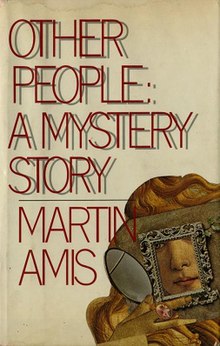
Judith Blume is an American writer of children's, young adult, and adult fiction. Blume began writing in 1959 and has published more than 25 novels. Among her best-known works are Are You There God? It's Me, Margaret. (1970), Tales of a Fourth Grade Nothing (1972), Deenie (1973), and Blubber (1974). Blume's books have significantly contributed to children's and young adult literature. She was named one of the 100 most influential people in the world by Time magazine in 2023.
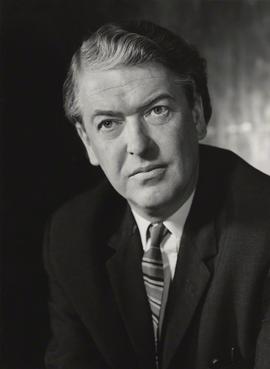
Sir Kingsley William Amis was an English novelist, poet, critic and teacher. He wrote more than 20 novels, six volumes of poetry, a memoir, short stories, radio and television scripts, and works of social and literary criticism. He is best known for satirical comedies such as Lucky Jim (1954), One Fat Englishman (1963), Ending Up (1974), Jake's Thing (1978) and The Old Devils (1986).

Sharon Marie Tate Polanski was an American actress and model. During the 1960s, she appeared in advertisements and small television roles before appearing in films as well as working as a model. After receiving positive reviews for her comedic and dramatic acting performances, Tate was hailed as one of Hollywood's most promising newcomers.
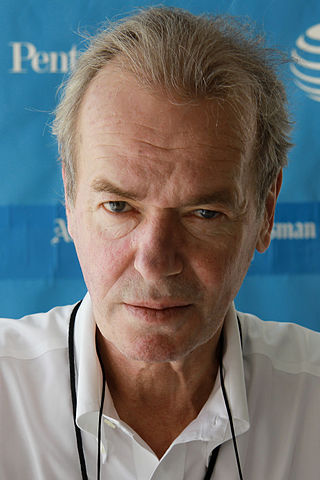
Sir Martin Louis Amis was an English novelist, essayist, memoirist, and screenwriter. He is best known for his novels Money (1984) and London Fields (1989). He received the James Tait Black Memorial Prize for his memoir Experience and was twice listed for the Booker Prize.
This article contains information about the literary events and publications of 1981.

London Fields is a blackly comic murder mystery novel by the British writer Martin Amis, published in 1989. The tone gradually shifts from high comedy, interspersed with deep personal introspections, to a dark sense of foreboding and eventually panic at the approach of the deadline, or "horror day", the climactic scene alluded to on the very first page.

Time's Arrow: or The Nature of the Offence (1991) is a novel by Martin Amis. It was shortlisted for the Booker Prize in 1991. It is notable partly because the events occur in a reverse chronology, with time passing in reverse and the main character becoming younger and younger during the novel.

Money: A Suicide Note is a 1984 novel by Martin Amis. In 2005, Time included the novel in its "100 best English-language novels from 1923 to the present". The novel is based on Amis's experience as a script writer on the feature film Saturn 3, a Kirk Douglas vehicle. The novel was dramatised by the BBC in 2010.
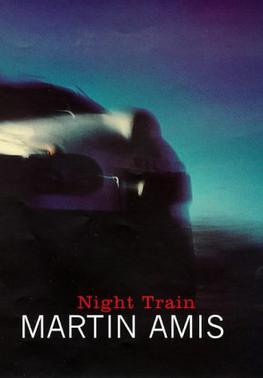
Night Train (1997) is a comedic parody of American detective novels by the author Martin Amis, named after the song "Night Train", which features twice in the novel.

Lynne Tillman is a novelist, short story writer, and cultural critic. She is currently Professor/Writer-in-Residence in the Department of English at the University at Albany and teaches at the School of Visual Arts' Art Criticism and Writing MFA Program. Tillman is the author of six novels, five collections of short stories, two collection of essays, and two other nonfiction books. She writes a bi-monthly column "In These Intemperate Times" for Frieze Art Magazine.

Marijane Agnes Meaker was an American writer who, along with Tereska Torres, was credited with launching the lesbian pulp fiction genre, the only accessible novels on that theme in the 1950s.

The Information is a 1995 novel by British writer Martin Amis. The plot involves two forty-year-old novelists, Gwyn Barry (successful) and Richard Tull. Amis has asserted that both characters are based on himself. It is, says Amis, a book about "literary enmity".

Couples is a 1968 novel by American author John Updike.

The Comfort of Strangers is a 1981 novel by British writer Ian McEwan. It is his second novel, and is set in an unnamed city. Harold Pinter adapted it as a screenplay for a film directed by Paul Schrader in 1990, which starred Rupert Everett, Christopher Walken, Helen Mirren and Natasha Richardson. The film is set in Venice.
Carolyn Coman is an American writer best known for children's books. Her novels What Jamie Saw (1995) and Many Stones (2000) were among the runners-up for major annual awards by the American Library Association (ALA) and the National Book Foundation.
Amy Holden Jones is an American screenwriter and film director best known for directing Slumber Party Massacre and for creating the FOX medical drama The Resident. She has edited various films and later began directing and writing. She currently works in television.
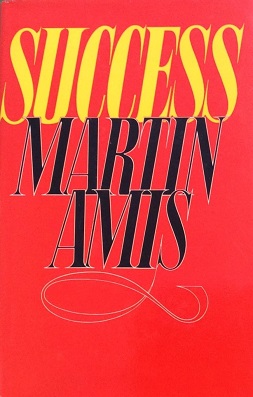
Success is Martin Amis's third novel, published in 1978 by Jonathan Cape.
Isabel Fonseca, Lady Amis is an American writer. She is best known for her books Bury Me Standing: The Gypsies and Their Journey and Attachment. She was married to novelist Sir Martin Amis until his death in May 2023.
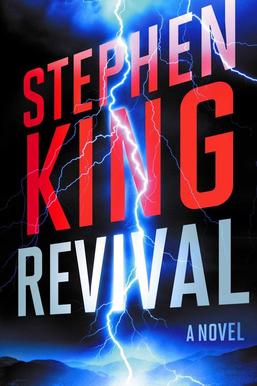
Revival is a novel by American writer Stephen King, published on November 11, 2014, by Scribner.

Disenchanted is a 2022 American live-action/animated musical fantasy comedy film directed by Adam Shankman and written by Brigitte Hales, based on a story conceived by Richard LaGravenese and the writing team of J. David Stem and David N. Weiss. Co-produced by Walt Disney Pictures, Josephson Entertainment, and Right Coast Productions, it is the sequel to the 2007 film Enchanted.
